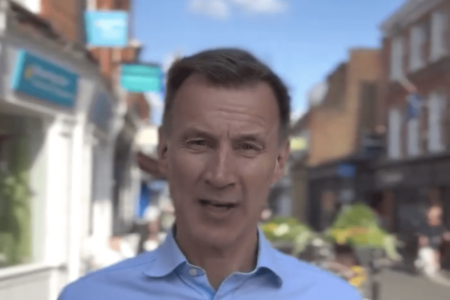Chancellor of the Exchequer Jeremy Hunt declared the inheritance tax unfair and “deeply anti-Tory”, and pledged to support the middle classes with tax breaks.
In an interview with TelegraphHunt stressed the Conservative Party's commitment to ending taxes that discourage earning and saving, and pledged to build on recent cuts to National Insurance.
In his first interview since Prime Minister Rishi Sunak called a snap election on July 4, Hunt outlined the Conservative Party's manifesto focusing on tax cuts designed to stimulate growth. He highlighted the need to reduce “labor taxes” and those that “disincentivize saving,” with the aim of creating a more favorable economic environment for workers and savers alike.
Hunt's comments come amid warnings from private schools that parents are withdrawing their children in anticipation of Labour's pledge to add VAT to school fees. Labor leader Sir Keir Starmer has promised to prioritize this tax change from “day one” of the Labor government, with a view to rapid implementation.
In contrast to Labour's tax plans, Hunt indicated that the Conservatives would seek to scrap the 60% effective tax rate on income between £100,000 and £125,140, due to the gradual reduction in tax-free personal allowances. He stressed the importance of allowing workers to keep more of their income, reiterating the goals of scrapping national insurance, moving more people off welfare and into work, and boosting support for home ownership.
“Our priority will be taxes that promote growth,” Hunt said. “This includes business taxes that encourage investment and taxes on work. Our National Insurance cuts are designed to address the one in five job vacancies across the economy. We must also address taxes that discourage saving in order to encourage more investment in the economy.
Hunt strongly rejected the idea of imposing a wealth tax, vowing that “there will be no wealth taxes under a Conservative government.” He described the inheritance tax as “harmful”, arguing that it discourages saving for the future and contradicts Conservative principles.
While Hunt considered cutting inheritance tax last year, possibly halving the rate from 40% to 20%, he refrained from committing to specific pledges in his manifesto. He stressed that his “first priority” is to reduce taxes, which has a greater impact on economic growth.
Asked whether cutting inheritance tax was a priority, Hunt replied: “I hope that is something that a Conservative government over time will be able to look at.” He stressed the huge importance of making work work and moving people off welfare into work, including cutting marginal tax rates on earnings over £50,000 while withdrawing benefits such as Universal Credit.
This position highlights the Conservatives' clear strategy of focusing on tax reforms aimed at boosting growth, encouraging saving, and supporting the middle classes, while drawing a clear line against Labour's proposed tax changes.
